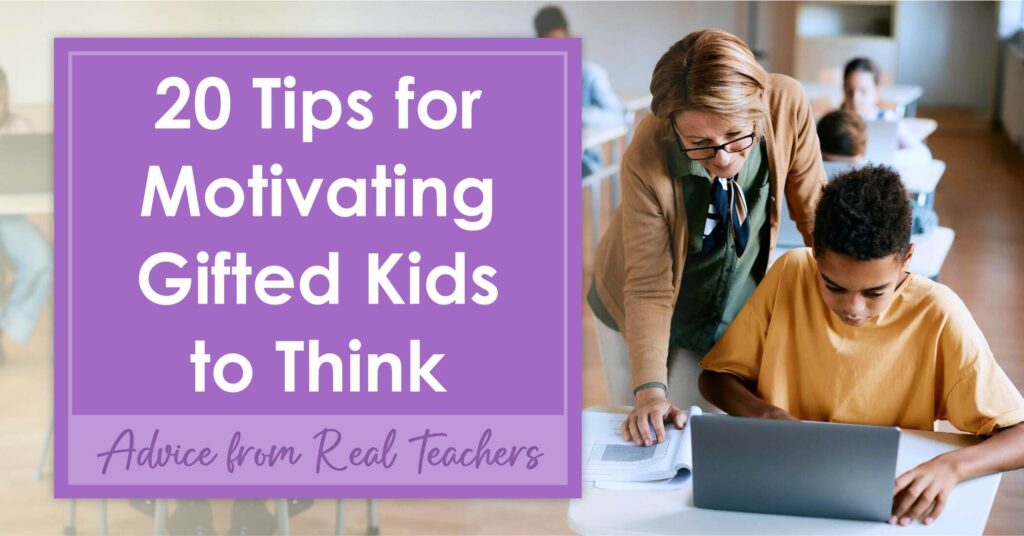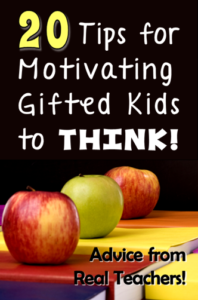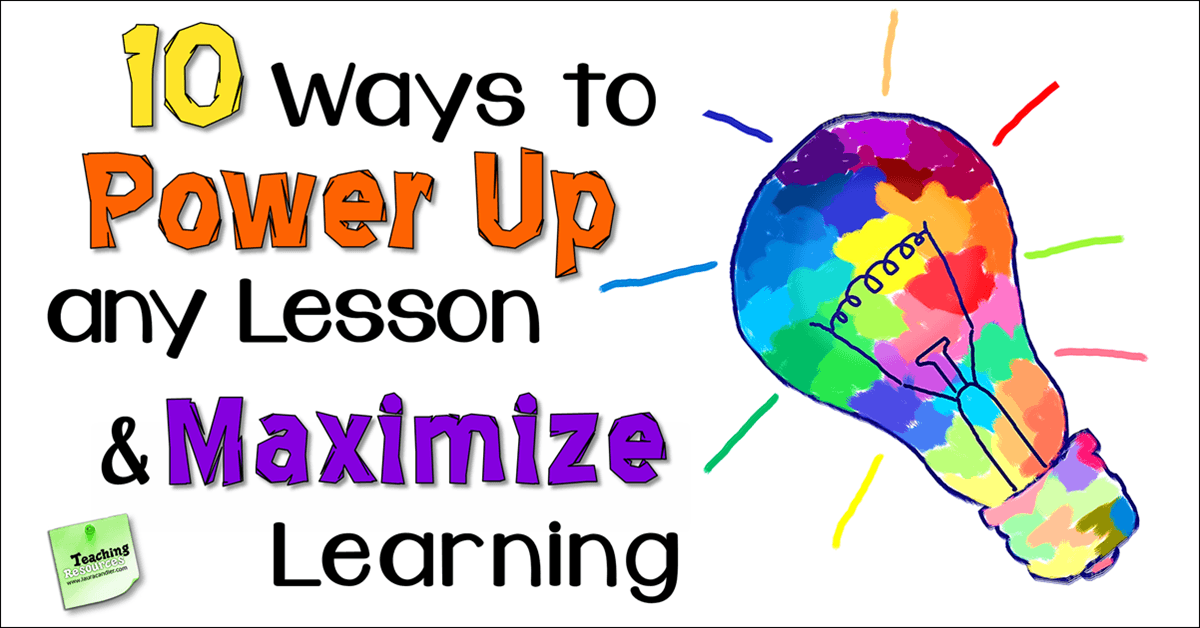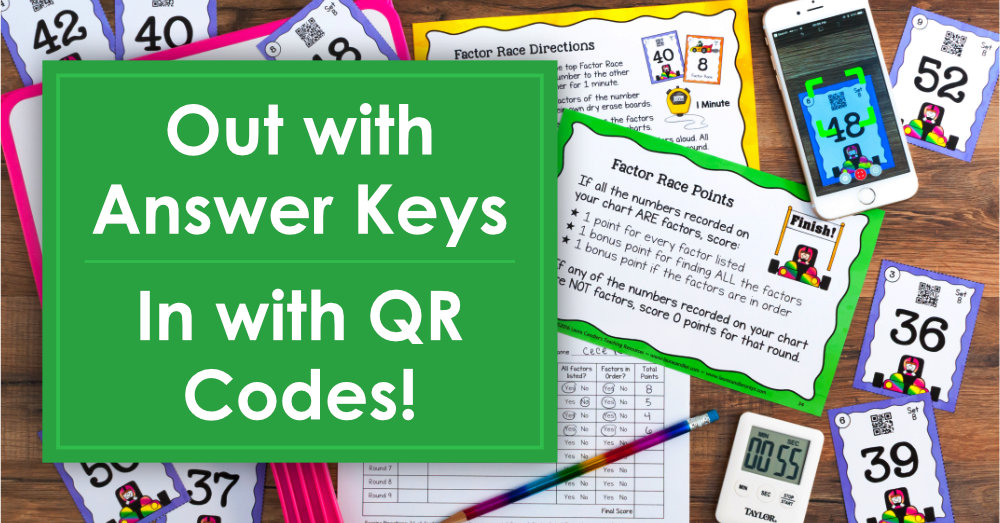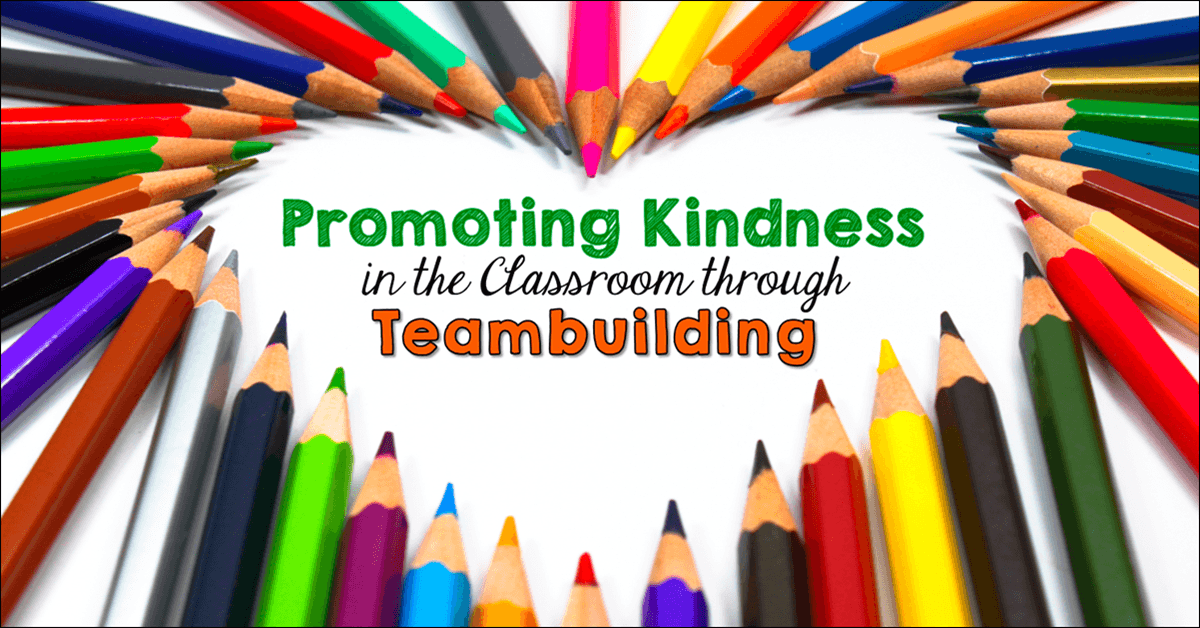Advice from Real Teachers Series
Chances are good that you have at least a few gifted children in your classroom, even if they aren’t formally identified as being gifted. These students can be a joy to work with, but it does take a special teacher to know how to motivate them to set high goals for themselves and being willing to take on challenges.
Today’s Question
Taylor is a fan of the Teaching Resources Facebook page who asked, “I’m working with a great group of gifted students. The only problem is that some of them don’t like to have to think because they’re used to everything being so easy. How do I motivate my top students to want to push to the next level? How do I get them to want to dig deep and not just to be masters of the surface level?”
Encouraging a Growth Mindset
Dozens of teachers responded to Taylor’s question, and many of them referred to Carol Dweck’s work on encouraging students to develop a “growth mindset” where they accept challenges and see the value in tackling difficult work. Dweck wrote, Mindset: The New Psychology of Success and it’s a life-changing resource. If you aren’t familiar with her work, watch this fascinating YouTube video that gives a great overview of some of the most relevant information for teachers. If it interests you, purchase the book to learn more.
Top 20 Suggestions for Motivating Gifted Kids to Think
Here are 20 of the best suggestions for motivating gifted kids to stretch themselves and reach their true potential. If you would like to read them all, click over to my Facebook page where you’ll find them.
- Steve Miller – Raise the rigor and your expectations. Failure IS an option in the real world. This means YOU have to be more rigorous in designing, prepping and executing difficult concepts. Your kids will step it up only when YOU “teach it up.” The first grades will be a wake-up call. Reel ’em in and teach! That’s what all of us were called to do!
- Matt Squires –They’re used to being praised on their intelligence, not their effort. They do not have ‘growth mindsets.’ (Watch this YouTube this from Carol Dweck- it’s incredible stuff). Make a huge effort to reward and praise their effort , not their intelligence and natural talent.
- MeLinda Gray -The main thing to focus on is what they are interested in. Are they gifted in your content area? If they have are identified gifted you need to know in which subject areas. Then, remember it is not giving them extra work, but giving them challenging work that is on a different level than the regular ed students, if you have any regular ed kids. After that, find out what they are interested in and try to design lessons, reading, etc, around those interests. Using webquests online can be a huge help in language arts, plus they love using the internet. It is a lot of extra prep, but they will really start responding and it will be so worth it.
- Mary Breveleri– Asking for evidence to back up an answer can get them to think deeper. What did you read or see that makes you say that? Deeper questions will result in deeper answers. Surface questions will result in surface answers. 🙂
- Sarah Smith – I had the same problem with my high math group. I would have the class solve a problem and choose 3-4 students with different answers or methods of solving the problem and have each student explain their solution and how they got there. I would then have the rest of the class debate on who was correct and why. It really made the students think about their own thinking (if that makes sense).
- Mary Moncus – We do team competitions. My gifted kids are very competitive and working in small groups they can help and motivate each other.
- Pam Dobrowski – I have to give them graphic organizers that prompt their thinking otherwise they won’t give me what I know they can do. I teach second grade.
- Cathleen Triplett – Project Based Learning: Have them brainstorm problems in the community and research and solve them. They could create a website to show what they’ve learned and educate others.
- Morgan Callahan – Try the book Your Fantastic Elastic Brain! Great for teaching kids how we can expand our minds.
- Zanda Clearbrook – You could try a flipped classroom, or at least incorporate some aspects of it. Give them the information up front, and they come back and do some kind of research/project that shows their understanding of it. Layered Curriculum could also be a choice to use, but that takes a bit to set up the first time.
- Michelle Watt – The important thing to remember about gifted students is to challenge them to go deeper not broader. Also, reward the process rather than the right answer. Research fixed vs growth mindset. They have likely been rewarded for always getting the correct answer rather than their thinking process.
- Lorri Hurst – Use guided inquiry to push them outside of their comfort zone. I do this with my AP students all the time. When they ask me a question I ask one in return. Ask questions to guide them to the place they need to be. You may have to explain this to your principal and even send a letter of the change in expectations. Make sure you explain your goal is to produce the Best Most Productive student you can…..thinkers not memorizers!
- Connie Copenhaver – The passion and drive GT students need are firm, fair, expectations from a teacher who embraces growth mindset and gives challenge, rigor, enthusiasm, to academic choices to student-driven projects. Allow the GT students to soar and be guided by you. Give room to grow within your lesson standards. Do not fear the what ifs…allow students to truly enjoy and engage in self-selected projects within a good question as stated in genius hour standards. You will see such joy of learning like never before! It will transfer into all areas in your classes. Good luck!
- Kathryn Rasinya-White – Give them CHOICE! Find out what interests them and let them explore that topic using a multidisciplinary approach.
- Kathleen Curran – Read the book Mindset by Carol Dweck. By focusing on a growth mindset it may get them working more. They’re used to being praised for how smart they are, not how hard they work. Works for low students as well
- Granny Bee – Genius & Passion Projects. STEM & STEAM. Anything where they get some choice and they have to set goals. Odyssey of the Mind. I tell my smart ones if they don’t challenge themselves they are going to get lazy. Rabbit & the hare? The slow and steady ones will pass them up.
- Stephanie O’Moghrain – Genius Hour!!! Google it, and spend about 6 hours absorbing all the info.
- Patricia Sardina – Try to change their mindset. If they’ve always been told that they’re gifted failing might make them feel awful! The frustration would be just the beginning… Instead of everyone telling them how smart they are, go for, “You can learn anything.” This implies a process; trying, and failing and trying again until you’ve got it right. If they believe that being challenged will help them learn more and keep them at the top they will go for it! Make it a game if you can: “let’s see how many new words you can learn this week” or “What do you think is the best way to do this?” Good luck!
- Pe Howell – Give them some challenges. Can you assign a project on a topic of their choice that utilizes some of the skills you want them to enhance?
- Reuben Hks – Try using Kaplan’s icons of depth and complexity. Here is a link to some information about them from Byrdseed.com, which is also a great website for GATE ideas.
The Question Connection on Facebook
If you would like to submit a teacher question of your own, you’ll find the information about how to do that on the original Question Connection blog post. Even if you don’t have a question, please follow me on Facebook and offer your advice when you see the questions come through! Working together, we can accomplish more!

